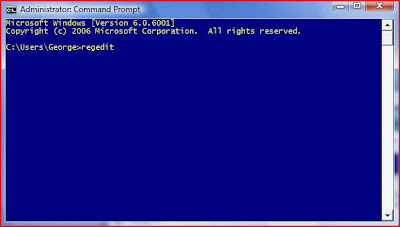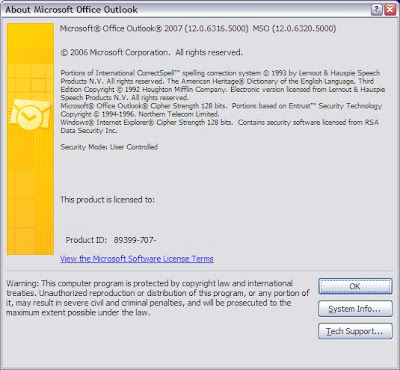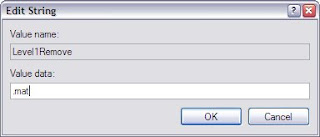Of course, the easy way out is to rename the file extension to something not blocked (e.g. someFile.mat_) and e-mail it and the recipient should change the file name back to its nominal form (i.e. someFile.mat).
Another way to solve this is by tweaking the windows registry. This is not as bad as it sounds. (Note: If you or your organization uses Microsoft Exchange, only the e-mail server administrator can unblock these file types. End users of Outlook cannot unblock these file types.)
Steps:
1. Open the command prompt (usually located under the Accessories menu - Start, Programs.)
2. Type regedit in command prompt.

3. From outlook -> Help -> About Microsoft Office Outlook. First line indicates version (12.0 in my case)

4. In the registry editor navigate to
HKEY_CURRENT_USER\Software\Microsoft\Office\12.0\Outlook\Security
5. Select from top menu bar: Edit > New> String Value
6. Name the new string Level1Remove
7. Right click on the string Level1Remove and select Modify from menu.
8. Enter the .mat extension in the 'Value data:' box. can enter more extensions that you want unblocked separated by semicolons (e.g. .mat;.bat;.exe).
HKEY_CURRENT_USER\Software\Microsoft\Office\12.0\Outlook\Security
5. Select from top menu bar: Edit > New> String Value
6. Name the new string Level1Remove
7. Right click on the string Level1Remove and select Modify from menu.
8. Enter the .mat extension in the 'Value data:' box. can enter more extensions that you want unblocked separated by semicolons (e.g. .mat;.bat;.exe).

9. Click OK and close all windows. You might have to restart Outlook for the changes to take effect.
